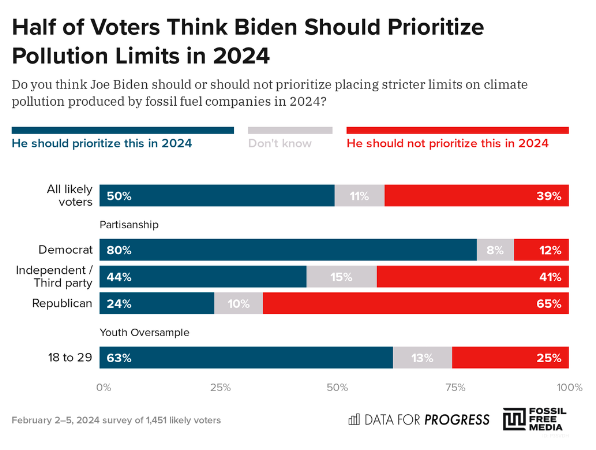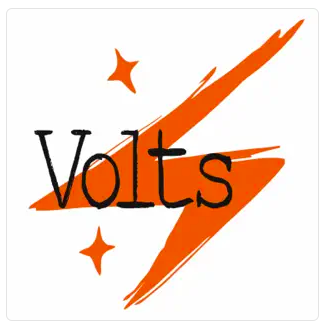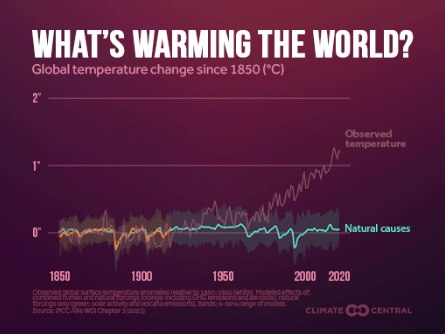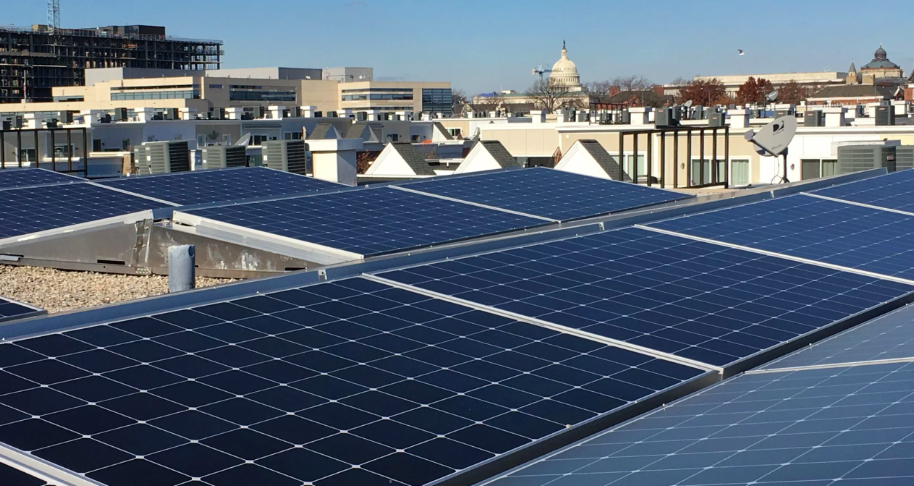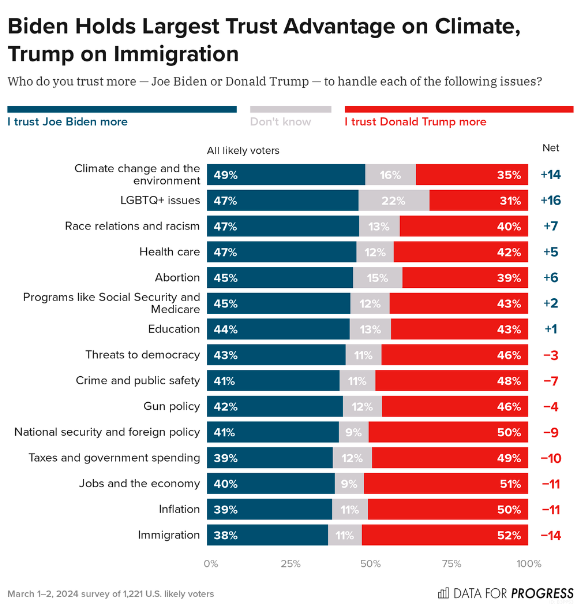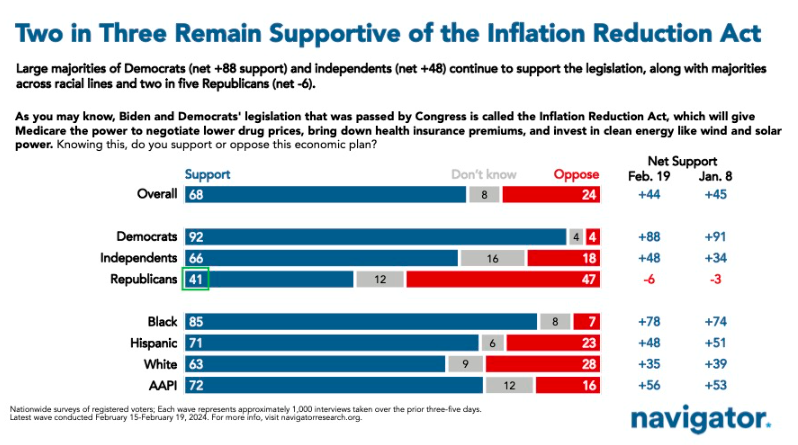Resources
Search below for resources covering the intersection of climate engagement, social science and data analytics.
RESULTS
Poll: Voters Support Holding Oil and Gas Companies Accountable and Want to See Stricter Pollution Limits
Voters distrust fossil fuel companies and the politicians that they fund, and want to see fossil fuel companies held accountable for their pollution. 84% of voters are concerned about oil and gas companies making large profits while consumers face rising energy bills. 78% of voters agree that “oil and gas companies that knew about the polluting impact of burning fossil fuels, but that intentionally misled the public about it, should be held accountable”.
Environmental Polling Roundup - March 15th, 2024
This post includes climate and environment headlines, data points, and key takeaways from recent public polls - including new polling about President Biden’s record on climate change and clean energy + new research on messaging about electric vehicles.
HEADLINES
Poll: Strong support for the EPA implementing stricter limits on carbon emissions from heavy-duty vehicles
How's IRA doing?
Is the Inflation Reduction Act, passed nearly two years ago, doing what it set out to do? In this episode, Trevor Houser of the Rhodium Group compares the predictions of pre-IRA energy-sector models to the real-world data on clean-energy investment since its passage.
Climate Reporting Resources
A roundup of science-based reporting resources can help bring climate change context into a range of stories. Most adults in the U.S. (72%) are convinced that global warming is happening, yet only 58% understand that human activities are the main cause. Local news is uniquely positioned to fill these knowledge gaps and inform the public on the causes and consequences of climate change — especially during extreme weather events. A new report from Nielsen and Climate Central analyzed four recent extreme weather events in the U.S.
Environmental Polling Roundup - March 8th, 2024
This post includes climate and environment headlines, data points, and key takeaways from recent public polls - including new polling on climate change as an issue in the presidential election, new polling on the Inflation Reduction Act, and new polling on EPA standards for particle pollution and vehicle emissions.
HEADLINES
Climate Power
Unlocking Clean Energy Incentives for Underserved Communities
The Inflation Reduction Act provides an unprecedented opportunity to foster more equitable participation in clean energy development and channel resources into historically marginalized communities. Because of the IRA’s Direct Pay provision, nonprofits, and state, local, and Tribal governments can now access tax credits over 10 years for clean energy projects in underserved communities. This democratizes energy, unlocking the potential for diverse entities across the U.S. to own clean energy assets as a wealth-building opportunity.
Climate and the environment rank among President Biden’s largest issue advantages over Trump. 76% of voters support protecting the environment and addressing climate change, including 47% who “strongly” support it. 75% of voters support investing in clean energy technologies, including 43% who “strongly” support it.
Poll: Americans Remain Pessimistic on the Economy and Personal Finances
Voters continue to support the Inflation Reduction Act by a wide margin after learning about it. Voters support the Inflation Reduction Act by a nearly three-to-one margin (68% support / 24% oppose) after reading a brief, one-sentence description of it. And while voters consistently say that they support the IRA, it would be a mistake to assume that they know much about it: polling has consistently found that awareness of the law lags far behind support for it.
New Poll Shows 7 in 10 Voters Support EPA Action to Clean Up Truck Pollution
Voters overwhelmingly support stronger EPA standards for particle pollution and heavy-duty vehicle emissions. 78% of voters support the EPA setting stricter limits on fine particles, also called “soot,” that power plants, oil refineries, and other industrial facilities can release. 82% of voters support the EPA setting stricter limits on mercury and other toxic air emissions from power plants. 78% of voters support the EPA setting stricter limits on smog from power plants, oil refineries, and other industrial facilities.
Pagination
- Previous page
- Page 4
- Next page
